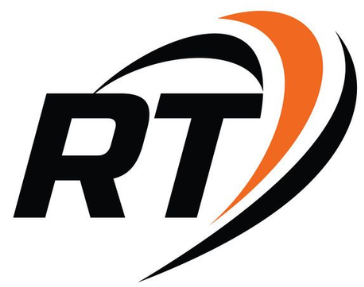Being an administrator is a critical and multifaceted role within any organization. Administrators are responsible for managing and overseeing various aspects of a company, including finances, operations, and personnel. They play a crucial role in ensuring the smooth functioning of a business and are often seen as the backbone of an organization.
In this article, we will delve into the responsibilities, qualifications, skills, salary, career path, training and development, leadership style, ethics and values, and best practices of an administrator. By understanding these important aspects of the job, we can gain a deeper appreciation for the vital role administrators play in the success of a company.
Qualifications for an Administrator

The qualifications for an administrator may vary depending on the industry and size of the organization. However, there are certain essential skills and qualifications that are necessary for any administrator to have. These include:
Educational Background
Most companies require their administrators to have at least a bachelor’s degree in a related field such as business administration, management, or finance. Some organizations may also prefer candidates with a master’s degree in a relevant discipline.
Having a strong educational background demonstrates a candidate’s commitment to learning, ability to handle complex tasks, and potential for growth within the company.
Experience
Experience is another crucial aspect of becoming an administrator. Many companies prefer candidates who have prior work experience in a similar role, preferably in the same industry. This allows them to hit the ground running and reduces the time needed for training.
Previous experience also shows that a candidate has a proven track record of success and is capable of handling the responsibilities of an administrator.
Technical Skills
In today’s digital age, it is essential for an administrator to have strong technical skills. Proficiency in standard office software such as Microsoft Office, as well as knowledge of accounting software and data analysis tools, is highly desirable.
Adeptness in using technology not only improves an administrator’s efficiency but also allows them to adapt to the changing needs of the business world.
Interpersonal Skills
Interpersonal skills are crucial for an administrator as they work with various individuals within and outside the organization. Strong communication, teamwork, and problem-solving abilities are essential for administrators to build and maintain relationships with colleagues, clients, and stakeholders.
Having excellent interpersonal skills also enables administrators to effectively delegate tasks and manage conflicts in a professional and efficient manner.
Administrator Interview Questions

If you are looking to become an administrator or are considering hiring one for your organization, here are some commonly asked interview questions that can help you assess a candidate’s qualifications and fit for the role:
- What motivated you to pursue a career as an administrator?
- What past experiences have prepared you for this role?
- Can you walk us through your approach to managing and prioritizing tasks?
- How do you handle conflicts within a team?
- What steps do you take to ensure confidentiality and security of sensitive information?
- Have you ever implemented a process improvement or cost-saving initiative? If yes, can you provide an example?
- How do you keep yourself updated with current industry trends and regulations?
- What leadership style do you prefer, and how does it align with the company culture?
- How do you handle stress and handle tight deadlines?
- What would you say are your top three strengths and weaknesses as an administrator?
Asking these questions can give you valuable insights into a candidate’s qualifications, experience, and potential for growth in the role of an administrator.
Administrator Skills

To be an effective administrator, one needs a combination of technical, interpersonal, and organizational skills. Let’s explore the most critical skills that an administrator should possess:
Organizational Skills
Administrators need to be highly organized individuals as they are responsible for managing multiple tasks and projects simultaneously. This requires them to have excellent time management, planning, and prioritization skills.
They should also be detail-oriented and have the ability to maintain accurate records, as even a minor error can have significant consequences for the organization.
Communication Skills
Strong communication skills are vital for an administrator as they need to communicate with various individuals, including employees, clients, and stakeholders. They should be able to convey information clearly and effectively through various mediums such as emails, reports, and presentations.
Active listening is another essential aspect of communication that allows administrators to understand the needs and concerns of others and address them appropriately.
Financial Management Skills
Many administrative roles involve managing finances, budgets, and financial reports. Therefore, it is crucial for an administrator to have a good understanding of financial management principles and be familiar with accounting software.
They should be able to analyze and interpret financial data to make informed decisions and maintain the financial health of the organization.
Problem-Solving Skills
In any role, problems and challenges are bound to arise, and administrators need to be able to handle them in an efficient and timely manner. They should possess strong problem-solving skills and be able to think critically and creatively to come up with effective solutions.
Having a proactive approach and the ability to anticipate and mitigate potential issues can also help administrators excel in their roles.
Leadership Skills
Administrators often oversee a team or department and are responsible for managing and motivating employees. Therefore, it is essential for them to have excellent leadership skills to guide and inspire their team towards achieving organizational goals.
They should be able to delegate tasks effectively, provide constructive feedback, and foster a positive work culture where employees feel valued and motivated.
Administrator Salary

The salary of an administrator can vary depending on factors such as industry, location, experience, and educational qualifications. According to Glassdoor, the average base pay for an administrator in the United States is $50,708 per year. However, this can range from $30,000 to over $80,000 annually, depending on the factors mentioned above.
In addition to a base salary, administrators may also receive bonuses and benefits such as health insurance, retirement plans, and paid time off. Higher education and relevant certifications can also increase an administrator’s earning potential.
Administrator Career Path
The role of an administrator is a crucial and versatile one that allows for growth and advancement within an organization. Many individuals start their careers as administrators and move up the ladder to higher positions such as executive assistants or office managers.
With experience and further education, administrators can also transition into roles such as human resources manager, project manager, or financial analyst. Some may even choose to start their own business or become consultants in their chosen field.
Administrator Training and Development
Continuous learning and development are essential for any professional, including administrators. It not only helps them stay updated with industry trends and best practices but also enhances their skills and qualifications.
Many organizations offer training and development opportunities for their administrators, either through in-house programs or by sponsoring external courses and certifications. These programs may cover areas such as leadership, communication, financial management, and software applications.
Administrators can also take the initiative to seek out their own learning opportunities, whether it be through online courses, workshops, or conferences. This not only adds value to their current role but also prepares them for future career advancements.
Administrator Leadership Style
As mentioned earlier, administrators often lead a team or department and are responsible for managing employees. Therefore, their leadership style plays a crucial role in shaping the work culture and productivity of their team.
There are various leadership styles that administrators may adopt based on their personality, values, and organizational needs. Some common leadership styles include:
Autocratic
An autocratic leader makes decisions independently without seeking input from their team. They have strict control over employees’ tasks and expect them to follow instructions without questioning.
This leadership style may work well in certain industries where strict guidelines and procedures need to be followed. However, it can also lead to low employee morale and creativity.
Democratic
A democratic leader involves employees in the decision-making process and encourages open communication and collaboration. They value their team’s input and seek consensus before making important decisions.
This style promotes a positive work culture where employees feel valued and motivated. However, it may not be suitable for all situations, as it requires more time and effort for decision-making.
Laissez-Faire
A laissez-faire leader gives employees a lot of freedom and autonomy in their roles. They trust their team to make decisions and take responsibility for their work.
This style can be effective when managing a team of experienced and self-motivated individuals. However, it may not work well if employees require more guidance and direction.
Transformational
A transformational leader inspires and motivates their team to achieve greatness by setting high standards and encouraging growth and development. They often lead by example and foster a positive work culture built on trust and mutual respect.
This leadership style can have a significant impact on employee satisfaction and productivity. However, it requires strong interpersonal skills and a deep understanding of individual needs and motivations.
Administrator Ethics and Values
Administrators hold a position of trust within an organization, and therefore, must adhere to high ethical standards. They are responsible for maintaining confidentiality, handling sensitive information with care, and ensuring compliance with laws and regulations.
Some ethical considerations that administrators should keep in mind include:
- Maintaining confidentiality of sensitive information
- Avoiding conflicts of interest
- Adhering to legal and industry-specific regulations
- Promoting fairness and diversity within the workplace
- Treating colleagues, clients, and stakeholders with respect and integrity
Having a strong moral compass and upholding ethical values is crucial for an administrator to gain the trust and respect of their team and contribute to the success of the organization.
Administrator Best Practices
To excel in their roles, administrators should follow certain best practices that can help them stay organized, efficient, and effective. Some of these best practices include:
Prioritizing Tasks
With numerous responsibilities, it is essential for administrators to prioritize tasks according to urgency and importance. This allows them to focus on critical tasks and meet deadlines efficiently.
Using a task management system, such as a to-do list or project management software, can help administrators stay on top of their tasks and ensure nothing falls through the cracks.
Effective Communication
Clear and effective communication is crucial for an administrator’s success. They should convey information to their team and colleagues accurately and in a timely manner.
Using various communication channels such as email, phone, and in-person meetings can also improve collaboration and understanding among team members.
Embracing Technology
As mentioned earlier, being proficient in technology is vital for an administrator’s success. Utilizing software and tools can not only enhance efficiency but also improve accuracy and organization.
Administrators should also stay updated with emerging technologies and trends that can benefit their organization and make suggestions for their adoption when appropriate.
Building Relationships
Developing strong relationships with colleagues, clients, and stakeholders is essential for an administrator. It not only fosters a positive work culture but also allows for better communication and collaboration when working on projects.
Taking the time to get to know team members and showing appreciation for their efforts can go a long way in building strong relationships.
Continuous Learning
Lastly, administrators should never stop learning and developing their skills. As mentioned earlier, training and development opportunities can be provided by the company or sought out independently.
Learning from mistakes and seeking feedback from colleagues and superiors can also help administrators improve their performance and become even more valuable assets to their organization.
Conclusion
In conclusion, administrators play a critical role in the success of any organization. They are responsible for managing various aspects of a business and possess a range of skills and qualifications to excel in their roles.
From organizational skills to leadership style, ethics and values to best practices, administrators must possess a diverse set of qualities to effectively fulfill their responsibilities. By understanding these aspects of the job, we can gain a deeper appreciation for the importance of an administrator’s role and the impact they have on an organization’s success.
Also visit for more blogs at : What is WTP?

